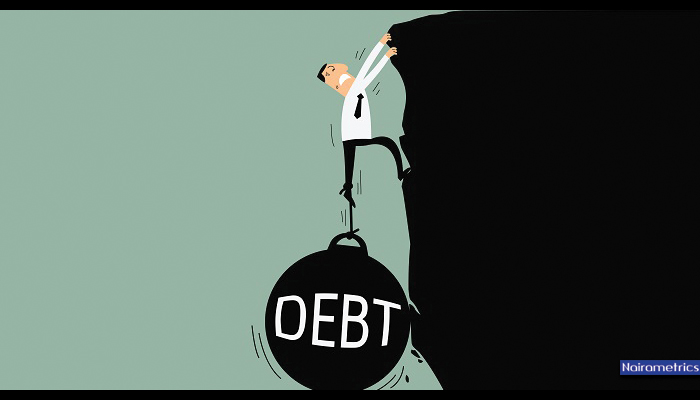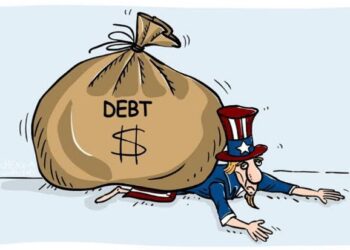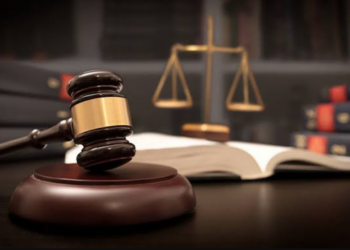The coronavirus pandemic has left the world’s economy in shambles. Banks, private and government-owned, have recorded an increase in loan requests. Loads of employees have become unemployed. Entrepreneurs who took loans to support their businesses were affected by the lockdown measures. Even global conglomerates took a hit, and stock prices dropped.
Debt does more than just reducing your spending power. Constantly defaulting on your debt repayment agreement, could buy you time in jail. Debts could give you anxiety-related health conditions. Regardless of the amount you possess, debt could ruin any financial statement without proper management.
In the post-pandemic period, there had been more people in debt, compared to the previous year. Don’t let the anxiety stall your debt repayment process.
While debt repayment can be excruciating, this article will give you nine (9) brilliant ideas you can use to pay them off.
- Stop payment using your bank cards
One of the villains of debt repayment in this technological era is the e-banking system. Mobile transactions, Debit and Credit Cards, they cause more financial crises, especially for people with poor management skills. When trying to fasten loan repayment, try to go traditional with your banking. It helps to avoid unnecessary spending.
(READ MORE: Growing concern for Nigeria’s ballooning debt profile) - Pay off the smaller debts first
Paying the smaller debts increases your chances of striking items off your list and also motivates you to continue. This method is commonly referred to as the snowball method, which involves making a list of your debts and their financial values. This list helps you keep track of your debts and also helps to determine their worth. Thus, you would be more inclined and motivated to pay off each debt eventually. - Pay off loans whose interest keeps accumulating
In cases where there are loans with high-interest rates which aren’t the smallest loans, the snowball method might put you in more debt. The method, commonly referred to as the avalanche method, helps you save more off interest rates. Create a list of your debts with their interest rates then commence either a monthly, weekly or daily payment method on the one with the highest interest rates. Do this consistently till you have cleared all your debts. - Budget your resources
The key to financial independence oftentimes is budgeting. Budgeting helps you manage your resources according to your needs. In periods of economic depression or debts, you should work to eliminate insignificant expenses. Your budget should begin with a scale of preference, your needs in their order of significance. Then draw a method to allocate money to only the needs that are very important within that period. - Stick to your budget
Making a budget and failing to stay in-line with your plan, is like buying bricks and hoping that the wind does the construction. A budget is meant to be a guide. It is a means to an end, which is eventual financial freedom. Your intentions wouldn’t come out to make your budget work if you keep on buying burgers and shoes at every window stop.
(READ MORE: The economy may end up weaker if inflation rate is not controlled – CBN report)
Loans/Debts have timelines, and the fastest way to clear your debts is to beat the timeline and avoid the interests. Keeping to your budget ensures that you have extra money to avoid paying interest. - Find an extra income source
Extra money at this time would help facilitate your debt repayment process. An extra hour or two could be the defining factor in keeping to the loan timeline. Yes, there are fewer jobs at the moment, especially with the state of the world’s economy. Freelancing is a viable option in this case. You get to work at your convenience and make extra money too. Fiverr, UpWork and LinkedIn, are reputable and safe platforms for finding freelancing jobs at low cost. - Pay timely and occasionally
The mistake most people make is trying to accumulate the total money before paying. This is careless, as you are prone to spend the money before the given date. With every fresh income earned, pay your debt(s) gradually, it helps ease anxiety. Timely payment not only ensures that you clear your debt(s) on time, they also add to your credit score and ensure that you can borrow again if need be. - Never borrow to pay debts
A debt is a debt, fresh or old. Never make the error of taking loans to pay off loans; it only leaves you in a fresher hole.
(READ MORE: Here are 7 ways to plan for the unexpected in your small business) - Change your spending habits
Spending on unnecessary items or unbeneficial investments while in debt(s), leaves you at the risk of widening your debt gap. It would help if you modified your spending habit to suit your current situation. If you must make it through, every extra resource is valuable.
Aside from poor management, debt is one of the significant causes of bankruptcy in the financial world. If you must maintain your financial independence and wealth, after repaying your debts, you must stick to all the habits and skill you acquired during your loan repayment period.
Avoid spending on insignificant investments, save every extra money you acquire till you find a profitable venture to invest in.
























Never borrow to pay debt… If the borrowed funds come at Zero interest or lower than the existing debt been serviced. Take it.